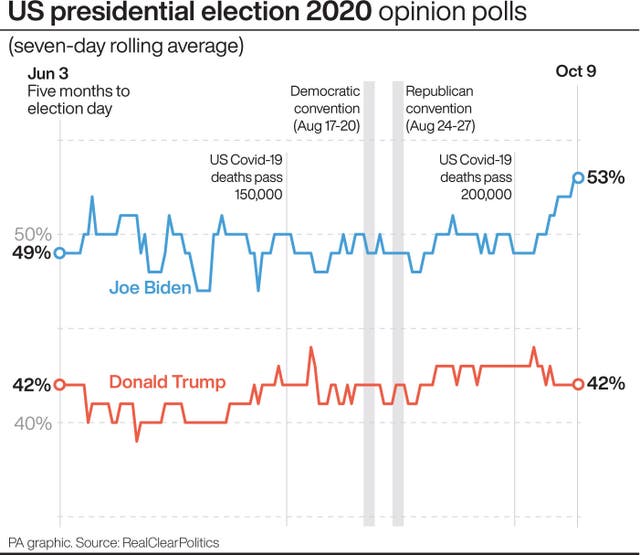
Matthew Wright 7am - 10am
9 October 2020, 13:44

US District Court Judge Mark E Walker noted the historical problems the state seems to have with elections.
A US federal judge has denied a motion to extend voter registration in Florida even though a computer meltdown on the final day of registration might have prevented thousands from taking part in November’s presidential election.
In a 29-page ruling on Friday morning, US District Court Judge Mark E Walker said his decision was “an incredibly close call” but added: “The state’s interest in preventing chaos in its already precarious — and perennially chaotic — election outweighs the substantial burden imposed on the right to vote.”
He noted the historical problems the state seems to have with elections.
“Notwithstanding the fact that cinemas across the country remain closed, somehow I feel like I’ve seen this movie before,” he wrote.
“Just shy of a month from election day, with the earliest mail-in ballots beginning to be counted, Florida has done it again.”
Florida secretary of state Laurel Lee reopened the registration site for seven hours on Tuesday after consulting governor Ron DeSantis, providing another opportunity to people who were not able to submit their voter registrations online before Monday night’s deadline.
Data filed by the state indicates that 50,000 people registered during the extended time period. Based on previous trends, the judge noted, another 20,000 additional people might have also registered to vote if they had been able to access the system.
Judge Walker criticised a state lawyer’s argument that other venues had been available to register to vote, including in-person at an elections office or by mail.
“With the public sounding the alarm, the secretary of state decided to implement a half measure,” he wrote.
“She hastily and briefly extended the registration period and ordered Florida’s supervisors of election to accept applications submitted by the secretary’s new ‘book closing’ deadline.”

Judge Walker wrote that Ms Lee’s “cure” had at least one major flaw: she did not notify the public until — at the earliest — after noon on the date of her new deadline.
“This left less than seven hours for potential voters to somehow become aware of the news and ensure that they properly submitted their voter registration applications, all while also participating in their normal work day, school, family and caregiving responsibilities,” he wrote.
The judge said the issue boils down to whether Ms Lee’s failure to maintain a fully functional voter registration website in the final hours of the registration period, and her limited deadline extension, “pass constitutional muster”.
Ultimately, he said, the need to prevent more chaos outweighed the denial of voting rights for thousands of Floridians.
In the end, the case is not about Floridians missing registration deadlines or a challenge to a state statute, Judge Walker wrote.
“This case is about how a state failed its citizens,” he wrote.
“In this case, potential voters attempted to perform their civic duty, to exercise their fundamental right, only to be thwarted, once again, by a state that seemingly is never prepared for an election.”